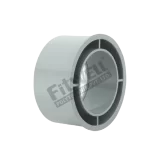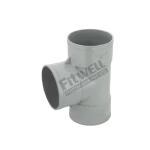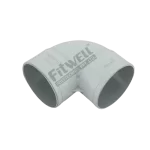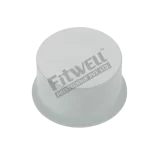FRP Manhole Covers: A Sustainable Choice for Modern Infrastructure
Introduction
As cities expand and infrastructure needs evolve, the demand for durable, eco-friendly, and cost-effective solutions has increased. One area where these needs are especially apparent is in manhole covers. Traditionally, metal and concrete have been the go-to materials for manhole covers, but they come with various drawbacks, including susceptibility to corrosion and theft. Enter FRP (Fiber Reinforced Plastic) manhole covers—a sustainable and modern alternative designed to address these challenges. In this article, we will delve into the advantages of FRP manhole covers, including their strength, durability, and environmental benefits, and why they are increasingly becoming the preferred choice in urban infrastructure.
What Are FRP Manhole Covers?
FRP (Fiber Reinforced Plastic) manhole covers are made using a combination of high-strength plastic resin reinforced with fiberglass. This composite material offers a unique blend of durability, strength, and resistance to environmental factors, making it an ideal choice for various infrastructure projects.
Key Features of FRP Manhole Covers:
- Lightweight: Easier to handle and install compared to traditional metal or concrete covers.
- Non-Corrosive: Resistant to rust, corrosion, and chemical exposure, enhancing their longevity.
- Customizable: Can be molded into various shapes, sizes, and colors to suit different needs.
Benefits of Using PVC Faucets in Plumbing
FRP manhole covers offer several benefits over traditional materials, contributing to more efficient and sustainable infrastructure.
1. High Strength-to-Weight Ratio
Despite being lightweight, FRP manhole covers exhibit remarkable strength. They can withstand heavy loads, making them suitable for areas with high vehicular traffic, such as roadways and industrial sites. Their strength-to-weight ratio also facilitates easier handling during installation and maintenance.
2. Durability
FRP manhole covers are designed to endure harsh conditions. They are resistant to cracking, chipping, and other forms of damage caused by weather, chemicals, and physical stress. This durability ensures a long service life, reducing the need for frequent replacements and repairs.
3. Environmental Friendliness
One of the standout features of FRP manhole covers is their environmental friendliness. Unlike traditional materials like metal and concrete, FRP is non-toxic and can be produced with a lower carbon footprint. Additionally, FRP covers do not leach harmful substances into the soil or water, contributing to a cleaner environment.
4. Corrosion and Chemical Resistance
FRP’s resistance to corrosion and chemicals makes these manhole covers an excellent choice for environments where traditional covers would quickly degrade, such as coastal areas, chemical plants, and wastewater treatment facilities.
5. Theft-Proof
Metal manhole covers are often targeted for theft due to their resale value. In contrast, FRP manhole covers have no scrap value, making them unattractive to thieves and enhancing the security of infrastructure.
Durability and Strength of FRP Manhole Covers
FRP manhole covers are renowned for their robustness and durability, which contribute to their growing popularity in infrastructure projects.
1. Load-Bearing Capacity
FRP manhole covers are engineered to meet stringent load-bearing standards. Depending on their design and intended use, they can handle various load classes, including light-duty pedestrian areas to heavy-duty traffic zones. This flexibility makes them suitable for a wide range of applications.
2. Weather Resistance
Unlike metal covers that rust or concrete covers that crack in extreme weather conditions, FRP covers remain unaffected by rain, UV radiation, and temperature fluctuations. This weather resistance ensures they retain their structural integrity over time, even in harsh climates.
3. Impact Resistance
FRP’s composition gives it a high level of impact resistance, reducing the risk of damage from heavy objects or equipment. This feature makes FRP manhole covers ideal for industrial settings, where the covers may encounter significant mechanical stress.
Manufacturing Process of CPVC Piping Systems
Environmental Friendliness of FRP Manhole Covers
Sustainability is a crucial consideration in modern infrastructure development. FRP manhole covers address this concern in several ways:
1. Reduced Environmental Impact
The production of FRP involves a lower carbon footprint compared to metal and concrete. Additionally, FRP covers do not require mining or quarrying, helping conserve natural resources. This environmentally conscious manufacturing process aligns with green building practices.
2. Non-Toxic Material
FRP is a non-toxic material that does not leach chemicals into the soil or water. This characteristic makes FRP manhole covers an eco-friendly option for use in areas where soil and groundwater protection is essential, such as agricultural zones and water treatment facilities.
3. Recyclability
Although FRP covers are not as easily recyclable as metal, they can be repurposed at the end of their life cycle. Some manufacturers have programs to grind and reprocess old FRP materials into new products, promoting a circular economy and reducing waste.
Applications in Modern Infrastructure
FRP manhole covers are highly versatile and can be used across a variety of applications:
1. Urban Roadways
FRP covers are commonly used in urban roadways due to their load-bearing capacity and resistance to weather and traffic-induced wear and tear.
2. Wastewater and Sewage Systems
Their corrosion and chemical resistance make FRP covers ideal for wastewater and sewage systems, where exposure to harsh chemicals and moisture is prevalent.
3. Parks and Recreational Areas
In parks and recreational areas, FRP covers provide a durable and non-slip surface, ensuring safety for pedestrians. Their lightweight nature also allows for easy installation and maintenance in these spaces.
4. Industrial Zones
FRP’s strength, chemical resistance, and non-conductive properties make these covers suitable for industrial areas, including chemical plants, factories, and power generation facilities.
Comparing FRP Manhole Covers with Traditional Materials
1. FRP vs. Metal Manhole Covers
- Corrosion: Metal covers corrode over time, especially in wet or chemical-rich environments, while FRP covers remain unaffected.
- Weight: FRP covers are lighter, making installation and maintenance easier and reducing labor costs.
- Theft: Metal covers are often stolen for their scrap value, whereas FRP covers have no resale value, deterring theft.
2. FRP vs. Concrete Manhole Covers
- Durability: Concrete covers crack and degrade in harsh weather conditions, whereas FRP covers are weather-resistant.
- Chemical Resistance: Concrete is prone to chemical damage, while FRP covers resist a wide range of chemicals, making them suitable for diverse applications.
Conclusion
FRP manhole covers are a sustainable and cost-effective solution for modern infrastructure. Their strength, durability, and environmental friendliness make them an excellent alternative to traditional metal and concrete covers. With the ability to withstand heavy loads, resist corrosion, and promote eco-friendly practices, FRP covers are an ideal choice for urban roadways, sewage systems, industrial zones, and more.
Stay on the forefront of industry trends by checking out our latest content
Stay ahead with our latest content, designed to keep you informed on the newest industry trends and insights. Discover valuable updates that help you lead in your field.

Trusted uPVC Pipes Manufacturers for India’s Top Contractors
Introduction: The Surge in Demand for uPVC Pipes Among Top Contractors in India The construction and infrastructure sectors in India have witnessed a significant transition toward sustainable and long-lasting materials.
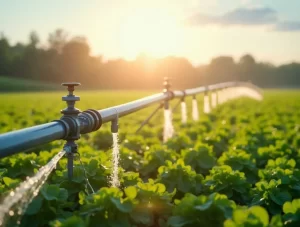
Top Innovations in Agricultural Pipe Fittings for Water Savings [2025]
Introduction to Agricultural Pipe Fittings and Water Sustainability Agricultural pipe fittings play a pivotal role in building efficient irrigation systems, crucial for modern farming practices. By exploring the versatility of

Expeart Tips from MDPE Pipe Fittings Manufacturers to Avoid Failures
Expeart Tips from MDPE Pipe Fittings Manufacturers to Avoid Failures Understanding MDPE Pipe Fittings: An Overview MDPE (Medium Density Polyethylene) fittings, used extensively in gas and water systems, offer strong,
Request a Free Consultation
Get personalized plumbing solutions with a free consultation from Fitwell.

